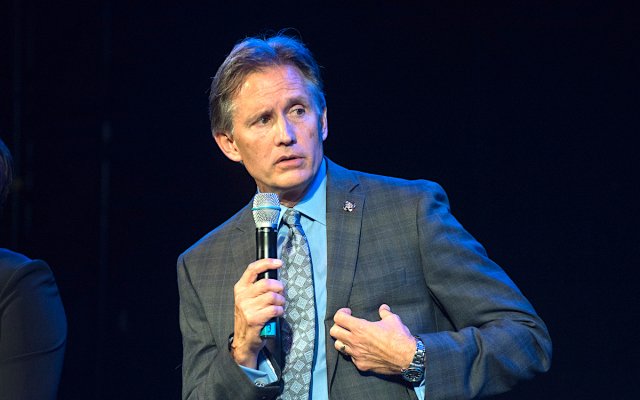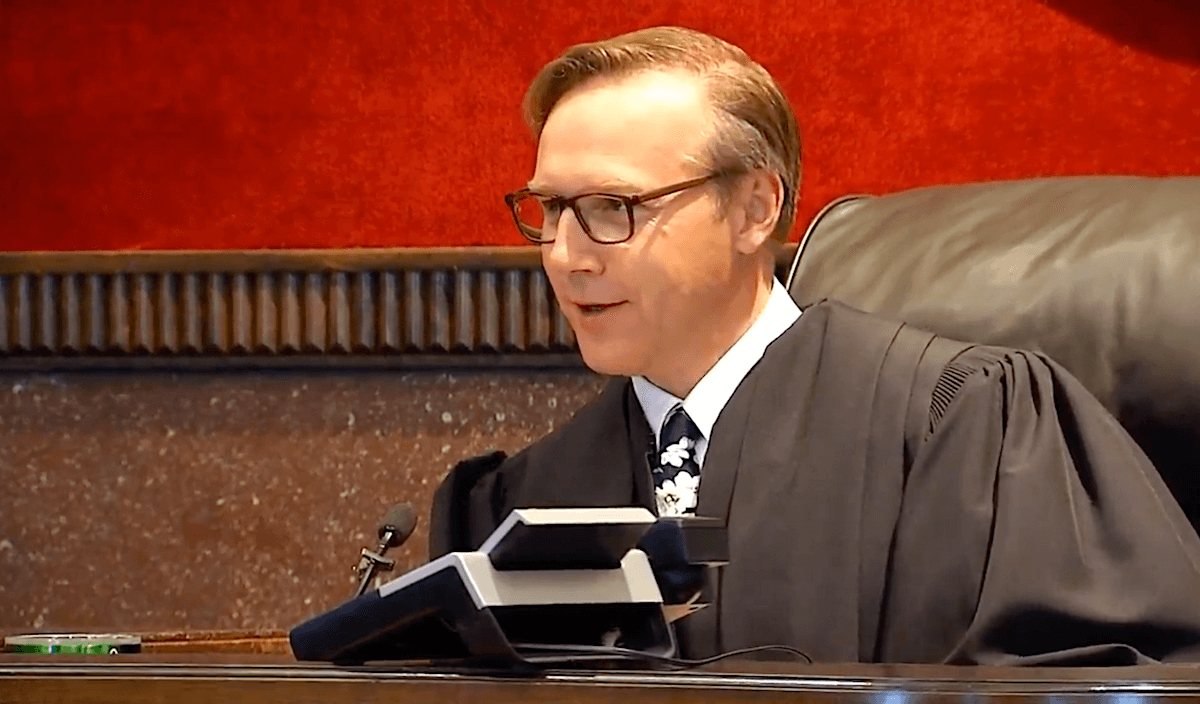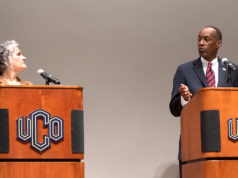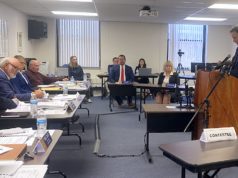

No one is happy with the final order in Oklahoma’s opioid trial.
Nearly a week after Cleveland County District Judge Thad Balkman issued his final order in the landmark trial, state Attorney General Mike Hunter announced that he and his team will appeal the judge’s decision.
“Judge Balkman’s conduct of both pre-trial and trial proceedings was informed and balanced,” Hunter said in a press release distributed shortly before noon today. “His final order was correct and evidence-based as to causation and Johnson & Johnson’s culpability. However, we respectfully disagree with his order where it says Johnson & Johnson must only fund one year of cleaning up the public nuisance he found Johnson & Johnson created, after the company deceived and bombarded our doctors and Oklahomans with lies, leading to the deadliest man-made public health crisis in our nation’s history.”
Hunter’s intent to appeal Balkman’s order means both the plaintiffs and the defendants are likely to ask the Oklahoma Supreme Court to review the case. Shortly after Balkman published his order Nov. 15, Johnson & Johnson told NPR that it would be appealing “because it is neither supported by the facts nor the law.”
“We recognize the opioid crisis is a tremendously complex public health issue and have deep sympathy for everyone affected,” the company said to NPR. “We do not believe litigation is the answer and are continuing to work with partners to find solutions.”
Today, Hunter emphasized that Balkman was correct in ruling a nuisance exists. But the state’s top prosecutor stood by his belief that Balkman had a duty to see that nuisance fully abated, which he previously argued will take at least two decades.
RELATED
Balkman sticks to one-year opioid abatement plan by Tres Savage
“This limitation directly opposes evidence presented during trial and the state’s public nuisance law, which requires full remediation of the problem,” Hunter said. “It is crystal clear under Oklahoma law that once a company is found liable for causing a public nuisance, it must pay what it takes to clean it up until the nuisance is gone.”
Hunter’s office encouraged the public to read Oklahoma’s abatement plan that was proposed to Balkman during the bench trial.
“During the trial, the state’s expert witnesses repeatedly testified that it could take up to 30 years or more to take our state back to where we were before the crisis began,” Hunter said. “Our abatement plan was put together by some of the foremost experts in the state and nation on what it will take to overcome this tragedy that continues to grip our state. All of these experts agree that there are dire consequences if we do not end the crisis in its entirety, and that it will get much worse and more Oklahomans will die. Johnson & Johnson had no abatement expert of its own and failed to present a competing abatement plan.”
With only one year of the abatement plan funded under Balkman’s order, state lawmakers have been uncertain about how elements of the plan would be continued after those first 12 months.





















